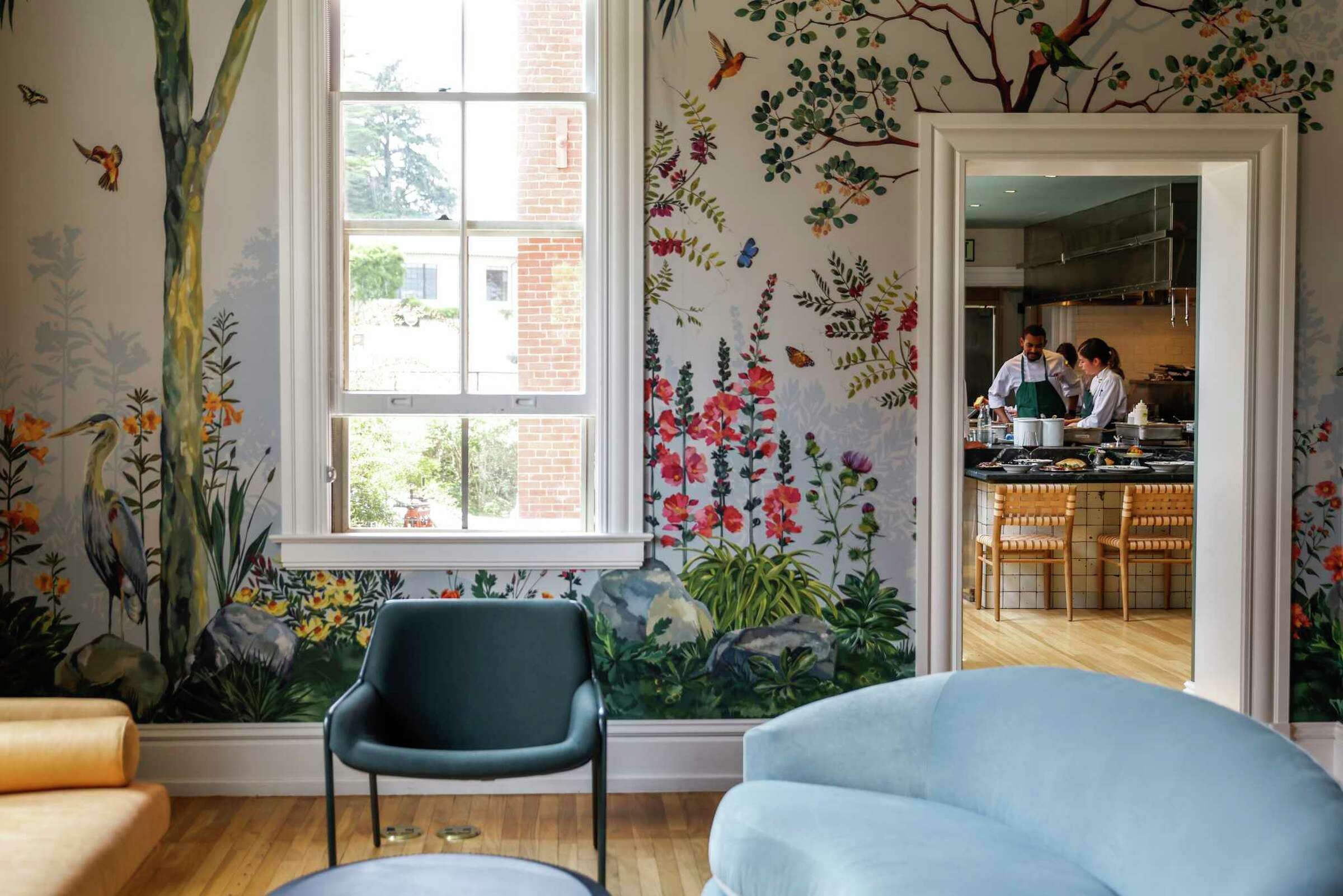There’s a right way to cancel a restaurant reservation — and a very wrong way
Length: • 5 mins
Annotated by Mark Isero

Co-owner Laura Ozyilmaz works in the kitchen at Dalida. The restaurant has about 10 no-shows a night, which wastes staff time and resources.
Jessica Christian/The ChronicleIt’s 9 p.m. on a weekend night at Dalida, a bustling eastern Mediterranean restaurant in San Francisco, and yet, while most of the diners are scraping their bowls to scavenge their last gooey spoonfuls of caramel rice pudding, the staff — line cooks, servers, and the rest — are still as tense as a coiled spring.
By 9:20 p.m. the restaurant is nearly empty, save for the staff.
But the ovens stay hot.
Eventually, the owners, Laura and Sayat Ozyilmaz, throw in the towel and swallow the hard truth: The big group that reserved a 9 p.m. table isn’t going to show. Everyone they’ve scheduled to serve the table has been lingering for nothing. When the couple finally gets a hold of the no-show party, there’s no excuse. Just, “We forgot.”
On average, Sayat told me, the restaurant has 10 no-shows a night. “It hurts me every single time. Like how could you disrespect the 60 people working in this restaurant like this?”
“It’s demoralizing for everybody,” said Laura, including the cooks who are waiting around, the servers whose tips are being impacted and the hosts who have to bear the brunt of explaining to ornery customers why they can’t seat them at the clearly empty tables.
Having customers cancel or even no-show a reservation is a normal, if loathed, reality in the hospitality industry. But San Francisco restaurant owners and staff tell me that the situation has become increasingly tense thanks to a newfound level of customer thoughtlessness and even aggression since the pandemic. When I listened to their stories, I didn’t just feel unease about the future of restaurants, but for the state of humanity as a whole.
To be fair, I wonder if people just don’t fully grasp the real-world impact of a reservation, which can now be made online as easily as swiping right on a dating app. It’s easy to assume a no-show might not be a big deal, since a popular restaurant can easily fill those seats. But that’s just not true.
Yes, prime tables book up incredibly quickly at critically acclaimed restaurants like Dalida. However, tucked away in the Presidio, Dalida is a destination restaurant — no one’s going to randomly walk in off the street to fill a no-show.
Even Four Kings, a buzzy Cantonese restaurant with plenty of foot traffic nearby in Chinatown, deals with the same worries. According to Lucy Li, who manages the business end of Four Kings, no-shows disrupt the 37-seat restaurant’s fragile ecosystem.
“It’s a planning issue,” she said. If a party of four ghosts them, that’s about 10% of their seating capacity, and there’s no guarantee that anyone on the online waiting list would be available at the last minute. Either way, the restaurant has to pay the same for food and labor.
Hours are wasted on setting up tables and prepping perishable ingredients. Already slim margins are made more tenuous by turning away walk-ins. And since it’s San Francisco, the restaurant chef has likely shopped at a farmer’s market for a close-to-exact number of diners. Anything extra is waste, and it cuts deeper in a time when freak accidents, robberies and more threaten to topple the many spinning plates that post-pandemic restaurants must balance to stay afloat.
“If one person doesn’t show up, we have to eat the cost ... literally and figuratively,” said Clint Tan of Noodle in a Haystack, a ramen restaurant in the Richmond District. It’s why he pays a $300 per month fee and 3% of sales to Tock, an online reservation booking platform that demands that diners prepay for meals when they reserve.
At Cafe Jacqueline, a French restaurant in North Beach where 86-year-old Jacqueline Margulis hand-whips each souffle to order, reservations still have to be made via phone; sometimes after playing phone tag with the staff for a few weeks.
You might ghost a Tinder date without much thought, but you’re less likely to ghost Mrs. Margulis after all that.
Cancellation fees for flaking have worked as a deterrent, some restaurant owners and staff tell me. But even this seemingly reasonable policy move has elicited a slew of problems.
Kim Alter, owner of Nightbird in Hayes Valley, has received death threats from customers who were asked to pay a $195-per-person fee, the price of dinner, for dropping reservations less than 48 hours before their appointed time. She’s been called a “c—” over this.
“The level of hatred that comes from people’s mouths is shocking,” Alter said.
And the hostility has only heightened since the pandemic. Yes, the fee seems high, but the policy is clearly stated online. Staff call and email patrons at least three times leading up to the end of the cancellation window. There’s not much more they can do to make this work.
Once a customer called Nightbird to cancel three hours before a reservation. When informed about the fee, the customer hung up. Ten minutes later, the customer’s partner called and told a different staff member the first person had died.
If you really have to get out of a reservation, you don’t need to go that far. The best way to handle it is to either pass off your reservation to someone you know who can go or call the restaurant and offer to rebook for a date that works. You might still have to pay a fee — but no one held a gun to your head to force you to reserve at a restaurant that asked you to agree to a clear cancellation policy.
Some common mistakes emerged in my conversations with restaurants for this story. First, before you reserve a table at a place, double-check the address and name to make sure it is actually the restaurant you want to book. Don’t make multiple reservations at different restaurants for one night so you can decide on that day.
Most of all, be honest and communicate with restaurants if something goes awry. And be aware that being honest doesn’t mean you get off scot-free — accepting the consequences of that honesty, no matter what they are, is the adult thing to do.
If we want restaurants to keep existing, we should stop asking them to foot the bill when we’re the ones in the wrong.
Reach Soleil Ho (they/them): Soleil@sfchronicle.com; Twitter: @hooleil
Soleil Ho is an opinion columnist and cultural critic, focusing on gender, race, food policy and life in San Francisco. They were previously The Chronicle’s Restaurant Critic, spearheading Bay Area restaurant recommendations through the flagship Top Restaurants series. In 2022, they won a Craig Claiborne Distinguished Restaurant Review Award from the James Beard Foundation.
Previously, Ho worked as a freelance food and pop culture writer, as a podcast producer on the Racist Sandwich, and as a restaurant chef. Illustration courtesy of Wendy Xu.
Guest opinions in Open Forum and Insight are produced by writers with expertise, personal experience or original insights on a subject of interest to our readers. Their views do not necessarily reflect the opinion of The Chronicle editorial board, which is committed to providing a diversity of ideas to our readership.

